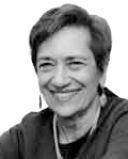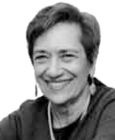
Self-Help
When Children Are Murdered
parents help each other, work with police, find bodies, open cold cases
Posted October 20, 2010
Last week I was in Colorado Springs, Colo. I spoke at the annual meeting of a mutual help group called Families of Homicide Victims and Missing Persons known to friends as FOHVAMP. Their website is www.unresolvedhomicided.org There were more than 300 people in attendance. All of these people experienced the death or disappearance of a family member or a friend. These are what the police call Cold Cases. When the body has been found and it is clear that there has been a murder it often is very difficult to finding the perpetrator. Even after a possible murderer has been identified, it is often very difficult or even impossible to gather enough evidence to convict. A study at the University of Colorado identified 1500 cold cases in that state.
Some of these families have lived with a loss for more than 25 years. Some know that their missing child, spouse, or sibling will never be found, and others live with the fact that a murderer will never be caught. FOVAMP was started to provide these families with a voice, to help them work with the police, to encourage the police to reopen their case, to look again, to not forget. Judging by the number of police departments present at this meeting and the respect they provided to these families, I would consider FOVAMP was very successful in the effort to establish cooperative arrangements with police departments. There is no easy answer but at least these families feel that there are people paying attention.
I wondered what I would be able to say to them? I read about an occasional disappearance where a body is not found. Never had I thought of meeting a large group of people who were brought together by this horrible experience. My invitation came from the founder of FOHVAMP, Howard Morton, whose son disappeared more than 25 years ago. About 10 years later they found his body, clearly a homicide victim, but after all this time the one who killed him will never be found. Howard heard me when I was interviewed by Katie Couric. on CBS Sunday morning. He thought "She would understand". What I said was that grief is not something you get over. The loss stays with you but you accommodate and go on with life, which is totally turned around as a result of what has happened. He felt that this was something that needed to be said at their annual meeting. This is something I knew and could say loud and clear. I did this in the framework of sharing with the audience how our understanding of grief has changed since I first stated working in this area more than 40 years ago. I called my talk "Lessons Learned".
What did I learn from this meeting? I learned that in these families there are often other children who are also grieving and trying to understand what happened. We need to pay more attention to their needs in light of the violence that often surrounds these losses and of how to parent a grieving child when a parent often has no idea what has happened to their loved one. One parent paid me a compliment. She had read my book and wished that she had had it when her daughter disappeared many years ago. I don't think we appreciate how many families are touched by such violence as parents try to deal with their own pain as well as that of their children..
I also learned that we need to develop community education programs about bereavement. These families are criticized, by friends, and even some by family members, because they still are concerned about the disappearance or the murder after many years. They are told:" Isn't it time you were over this?" We need to help people get over the idea that grieving is a brief event and that people SHOULD put it behind them. Regardless of the cause of the death more bereaved people than I would like to hear about get this message from friends and family who they had hoped and expected would be supportive of them. In such a community program I would like to help people understand the need to remember and to honor the dead. The impact of such losses just doesn't go away.
At the end of the meeting balloons were released into the beautiful clear sky over Colorado Springs. To each balloon was attached the name of the murdered or missing person, and a poem that I am very fond of. I remembered my father, who was killed, at the age of 95, by a reckless driver with a suspended drivers license. The poem is called We Remember Them. It was written by Sylvan Kamens and Rabbi Jack Reimer many years ago. Here are a few phrases from it:
In the rising of the sun and in its going down,.
We remember them
When we have joys we yearn to share,
We remember them
So long as we live
They too shall live
For they are still a part of us
As we remember them.

